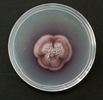


[Point Reyes Light] A technology originally invented to detect airborne terrorist pathogens could now help beach-goers, ranchers and shellfish growers throughout West Marin. A new type of molecular biology gadget called the PhyloChip (developed by Gary Andersen, Todd DeSantis, Eoin Brodie, and Yvette Piceno of the Lab’s Earth Sciences Division) can differentiate between 32,000 types of bacteria. It’s being used to study bacteria in coastal waters through Marin County’s Clean Beach PhyloChip Project and could have huge implications for water quality tests. More>
 In The News: Campus/Lab Parallel Computing Lab Officially Launched
In The News: Campus/Lab Parallel Computing Lab Officially Launched [EE Times] Researchers officially christened the Parallel Computing Lab (ParLab) on campus Monday in a newly renovated space at UC Berkeley. The center, of which Berkeley Lab is a participant, has been conducting work for several months to define a new parallel programming model for tomorrow's many-core processors that could replace serial methods that have served mainstream computing since its inception. "We have the opportunity to reset the software stack for the next 30 years," said ParLab Director David Patterson, also with Berkeley Lab’s Computational Research Division. More>
 Research: Broccoli Compound Targets Key Enzyme in Cancer
Research: Broccoli Compound Targets Key Enzyme in CancerAn anti-cancer compound found in broccoli and cabbage works by lowering the activity of an enzyme associated with rapidly advancing breast cancer, according to a UC Berkeley study by Gary Firestone, with Berkeley Lab’s Life Sciences Division, and Leonard Bjeldanes. The compound, indole-3-carbinol, is already undergoing clinical trials in humans because it was found to stop the growth of breast and prostate cancer cells in mice. More>
[Berkeleyan] Berkeley's faculty voted overwhelmingly last year to endorse the Energy Biosciences Institute — a $500 million research partnership (that includes Berkeley Lab) initiated and funded by energy giant BP — in the face of fears in some quarters about growing corporate influence on the academy. Prompted by those concerns, a faculty task force has concluded that the risks posed by large-scale university-industry collaborations are real but manageable, and that corporate funding "can be pursued in a way consonant with Berkeley's distinctive values, excellence, and mission." More>
 World of Science: Fungus May Provide New Path Toward Biofuel Production
World of Science: Fungus May Provide New Path Toward Biofuel Production A wild fungus that grows in the Patagonian rainforest has been found to produce a variety of hydrocarbon components of diesel fuel, which can be varied by changing the growing medium and environment of the fungus. Researchers envision these fungi, or their genetic material, being used in the future to purposefully manufacture hydrocarbons for fuel. More>